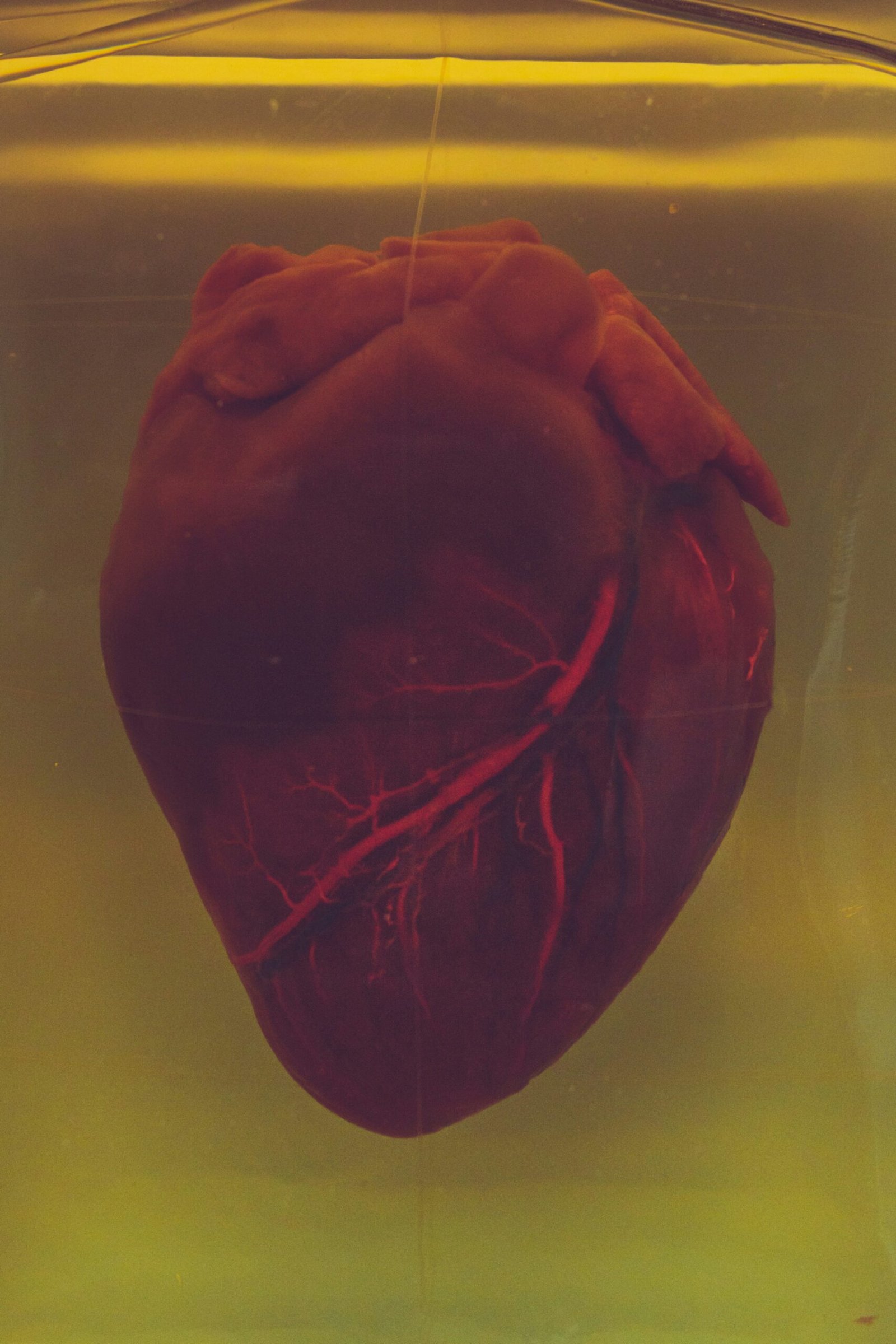If you have been diagnosed with both gout and a heart condition, you may be wondering if there is a connection between the two. It turns out that certain heart medications could indeed be linked to an increased risk of gout. In this article, we will explore the relationship between gout and certain heart medications, helping you better understand how these two conditions may be interconnected. So, sit back, relax, and let's unravel the mystery surrounding gout and heart medications.

Understanding Gout
Definition of Gout
Gout is a type of arthritis that causes severe pain, redness, and swelling in joints. It occurs when there is a buildup of uric acid crystals in the affected joints, leading to inflammation and discomfort. The most commonly affected joint is the big toe, but gout can also affect other joints such as the ankles, knees, wrists, and elbows.
Common Symptoms of Gout
The symptoms of gout often come on suddenly and can be quite intense. The most common symptom is an excruciating pain that typically starts in the middle of the night. The affected joint becomes hot, red, and swollen, and even the slightest touch can cause severe discomfort. Some individuals may also experience fever and general malaise during gout attacks.
Possible Causes of Gout
Gout is primarily caused by an overproduction or underexcretion of uric acid, a waste product that is normally filtered out by the kidneys and excreted through urine. When the body produces an excess of uric acid or fails to eliminate it efficiently, the uric acid can accumulate and form sharp crystals in the joints, leading to gout. Certain risk factors such as genetics, obesity, a diet high in purine-rich foods, alcohol consumption, and certain medical conditions can increase the likelihood of developing gout.
Implications of Long-term Gout
If left untreated or not properly managed, gout can have long-term implications on a person's health. Recurrent gout attacks can cause permanent damage to the affected joints, leading to joint deformities and limited mobility. Additionally, the chronic inflammation associated with gout may contribute to the development of other health conditions such as hypertension, cardiovascular disease, and kidney problems. Therefore, it is crucial to address gout promptly and effectively to minimize its long-term impact on overall health.
Introduction to Heart Medications
A Brief Overview of Heart Medication
Heart medications, also known as cardiovascular medications, are prescribed to individuals with various heart conditions to manage and treat their condition. These medications work by targeting specific aspects of heart function, such as regulating blood pressure, reducing cholesterol levels, improving heart muscle strength, and preventing clot formation.
Commonly Prescribed Heart Medications
There are several types of heart medications, each with its specific purpose and mechanism of action. Some commonly prescribed heart medications include beta-blockers, calcium channel blockers, ACE inhibitors, angiotensin receptor blockers (ARBs), diuretics, antiplatelet medications, and statins. These medications are often utilized in combination to achieve the most effective management of heart conditions.
Expected Benefits of Heart Medications
Heart medications play a crucial role in the management and treatment of heart conditions. They can help control blood pressure, lower cholesterol levels, improve blood flow, prevent blood clots, and reduce the workload on the heart. By addressing these key factors, heart medications can significantly improve heart function and reduce the risk of complications such as heart attacks, heart failure, and stroke.
Common Side Effects of Heart Medications
While heart medications are generally safe and well-tolerated, they can sometimes lead to side effects. The specific side effects experienced can vary depending on the medication prescribed. Common side effects may include dizziness, fatigue, headaches, low blood pressure, digestive issues, muscle weakness, and an increased risk of bleeding. It is essential to discuss any concerning side effects with your healthcare provider.
How Heart Medications Work
The Mechanism of Action of Heart Medications
Each class of heart medication works in a unique way to target specific aspects of heart function. Beta-blockers, for example, work by blocking the effects of adrenaline, thereby reducing heart rate and blood pressure. Calcium channel blockers inhibit the entry of calcium into heart muscle cells, relaxing and widening the blood vessels. ACE inhibitors and ARBs lower blood pressure by blocking the action of certain hormones that constrict blood vessels. Diuretics increase the elimination of sodium and water from the body, reducing fluid accumulation and lowering blood pressure.
The Role of Heart Medications in Managing Heart Conditions
Heart medications are essential in managing heart conditions as they help regulate key factors that contribute to heart health. By reducing blood pressure, cholesterol levels, and clot formation, these medications alleviate the strain on the heart, improve blood flow, and minimize the risk of adverse events. They are often prescribed alongside lifestyle modifications, such as a healthy diet and regular exercise, to provide comprehensive management of heart conditions.
Different Classes of Heart Medications and Their Function
Heart medications are classified into various categories, each targeting different aspects of heart health. Beta-blockers, calcium channel blockers, ACE inhibitors, and ARBs primarily focus on regulating blood pressure. Diuretics help reduce fluid retention and control blood pressure. Antiplatelet medications, such as aspirin, prevent blood clot formation. Statins are prescribed to lower cholesterol levels and prevent the buildup of plaque in arteries. By utilizing different classes of heart medications, healthcare providers can tailor treatment plans based on individual patient needs.
Potential Connection Between Heart Medications and Gout
Emerging Research on The Link
Recent research has shed light on a potential connection between certain heart medications and gout. A study published in the Journal of the American Medical Association (JAMA) found that the use of diuretics, commonly prescribed for hypertension and heart failure, was associated with an increased risk of gout. Other studies have also suggested a possible link between the use of beta-blockers and the onset or exacerbation of gout symptoms. While more research is needed to establish a definitive association, these findings raise concerns that need to be addressed in clinical practice.
Heart Medications That May Aggravate Gout
Diuretics, particularly the thiazide diuretics, have been identified as potentially aggravating gout, as they increase uric acid levels in the body. Uric acid is a known trigger for gout attacks, and the use of diuretics can interfere with the body's natural ability to eliminate uric acid. Beta-blockers, often prescribed for hypertension and cardiovascular conditions, may also contribute to gout by reducing the excretion of uric acid through the kidneys. However, it's important to note that not all heart medications have been linked to gout, and individual responses may vary.
Understanding the Biological Link
The connection between heart medications and gout lies in their effect on uric acid levels in the body. Diuretics, by increasing uric acid production and decreasing its elimination, can lead to elevated levels of uric acid, which may trigger gout attacks. Similarly, beta-blockers have been found to inhibit the excretion of uric acid, potentially leading to its accumulation and subsequent gout flare-ups. Understanding this biological link is crucial for medical professionals to consider when prescribing heart medications to individuals with a history of gout or susceptibility to gout attacks.

Exploring Specific Heart Medication-Induced Gout Cases
Research Studies and Clinical Cases
Several research studies and clinical cases have provided insights into heart medication-induced gout. For example, a study published in the Journal of Rheumatology examined patients taking thiazide diuretics and found a significant correlation between the duration and dosage of thiazide diuretic use and the risk of gout development. Clinical cases have also highlighted instances where gout attacks occurred shortly after starting specific heart medications, suggesting a potential causal relationship.
Patient Experiences
Patients taking certain heart medications have reported experiencing gout episodes after starting their heart medication regimen. These experiences often involve sudden and severe joint pain, swelling, and redness, consistent with gout attacks. Some individuals have noticed a clear temporal relationship between the initiation of heart medication and the onset of gout symptoms, while others have experienced worsening or more frequent gout attacks while taking specific heart medications.
Healthcare Professionals' Observations
Healthcare professionals have noted an association between heart medications and gout in their clinical practice. While observational in nature, these observations have raised concerns regarding the role of diuretics and beta-blockers in triggering or exacerbating gout symptoms. Healthcare professionals play a vital role in documenting and reporting these observations, contributing to our understanding of the potential connection between heart medications and gout.
Implications of the Connection for Patients
Potential Impact on Overall Health
For individuals with both heart conditions and gout, the potential connection between heart medications and gout can have implications for their overall health. If gout symptoms are not effectively managed, they can significantly impact daily activities and quality of life. Moreover, the chronic inflammation associated with gout may contribute to the development of other health complications, such as cardiovascular disease and kidney problems. It is crucial for patients to work closely with their healthcare provider to address both their heart condition and gout for optimal overall health outcomes.
Influence on Gout and Heart Medication Management
The connection between gout and certain heart medications can pose challenges in managing both conditions simultaneously. Healthcare providers must carefully evaluate treatment options, considering the potential impact on gout symptoms. In some cases, medication adjustments or alternative treatments may be necessary to strike a balance between effectively managing the heart condition while minimizing gout flare-ups. Open and honest communication between patients and healthcare providers is key to finding the right approach for each individual.
Necessity of Medical Monitoring
With the potential connection between heart medications and gout, ongoing medical monitoring becomes vital for individuals with both conditions. Regular check-ups and monitoring of uric acid levels can help identify any changes or trends that may require intervention. By closely monitoring gout symptoms and heart function, healthcare providers can make informed decisions regarding treatment plans, ensuring the best possible outcomes for their patients.

Patient Safety and Risk Management
Risk Evaluation for Heart Patients with Gout
When prescribing heart medications to patients with gout, healthcare providers must assess the potential risks and benefits. Patient-specific factors such as the severity of gout symptoms, underlying heart condition, and medical history will contribute to this risk evaluation. By considering individual patient characteristics, healthcare providers can make informed decisions about initiating or adjusting heart medication regimens to minimize the risk of gout-related complications.
Preventive Measures to Lower Risk
To reduce the risk of gout attacks in patients taking heart medications, preventive measures can be implemented. Lifestyle modifications, such as maintaining a healthy weight, adopting a balanced diet low in purine-rich foods, limiting alcohol consumption, and staying hydrated can help lower uric acid levels and minimize the risk of gout flare-ups. Regular physical activity and stress-reduction techniques may also have a positive impact on both heart health and gout management.
Strategies for Safe use of Heart Medications in Gout Patients
When managing heart conditions in patients with gout, healthcare providers can employ various strategies to ensure safe medication use. Individualizing treatment plans based on patient characteristics, closely monitoring potential side effects or gout symptoms, and adjusting medication dosages as necessary can help strike a balance between managing the heart condition and minimizing gout-related complications. Collaboration between healthcare providers specializing in both cardiology and rheumatology may be beneficial in optimizing treatment strategies for these dual-diagnosed patients.
Alternative Treatment Strategies
Non-Medication Therapies for Heart Patients with Gout
In addition to traditional medication approaches, non-medication therapies can also play a role in managing heart conditions in patients with gout. These therapies may include lifestyle modifications such as dietary changes, regular exercise, stress reduction techniques, and weight management. Furthermore, complementary therapies like acupuncture, massage, and herbal remedies have been explored as potential adjunctive treatments for heart conditions and gout symptoms. However, it is essential to consult with healthcare professionals before incorporating any alternative therapies to ensure their safety and efficacy.
Role of Diet and Lifestyle Changes
Diet and lifestyle changes can significantly impact both heart health and gout management. A heart-healthy diet, low in purine-rich foods, can help reduce the risk of gout flare-ups while also promoting cardiovascular health. Maintaining a healthy weight through regular exercise and portion control can further contribute to managing both conditions effectively. By adopting a holistic approach that addresses dietary and lifestyle factors, patients can take an active role in managing their heart condition and minimizing the impact of gout.
Holistic Treatment Approaches
Holistic treatment approaches consider the interconnectedness of various bodily systems and aim to optimize overall health and well-being. Integrative medicine practices, such as naturopathic medicine and functional medicine, take into account lifestyle factors, mental and emotional health, and personalized treatment plans. These approaches recognize the unique needs and goals of each patient, incorporating a combination of conventional medicine, lifestyle modifications, and complementary therapies. While further research is needed to evaluate the effectiveness of these approaches, they offer a promising avenue for holistic management of heart conditions and gout.
Discussion on Current Medical Guidelines
Current Medical Guidelines on Heart Medication Use
Medical guidelines regarding heart medication use focus on evidence-based recommendations for the management and treatment of heart conditions. These guidelines are developed by expert panels composed of cardiologists, pharmacologists, and other medical professionals. While these guidelines primarily address heart conditions, the potential connection between heart medications and gout needs to be considered in clinical decision-making. As new research emerges, it is essential for future guidelines to incorporate this information to provide comprehensive and up-to-date recommendations.
Gout Management Guidelines in Heart Patients
Gout management guidelines, established by rheumatology societies and organizations, primarily focus on addressing the diagnosis, treatment, and prevention of gout attacks. These guidelines may not widely incorporate the potential influence of heart medications on gout symptoms. The evolving understanding of the connection between heart medications and gout calls for updates to gout management guidelines that consider the impact of heart medications on disease progression and symptom control.
Revisiting Guidelines in light of the Possible Connection
The potential connection between gout and heart medications highlights the need to revisit and update current medical guidelines. Expert panels and organizations dedicated to cardiovascular health and rheumatology should collaborate to review the available evidence, discuss potential implications, and incorporate these findings into updated guidelines. By addressing the potential connection between gout and heart medications within these guidelines, healthcare providers will have more comprehensive guidance when managing patients with both conditions.
Future Research Directions
Identifying gaps in Current Knowledge
While the emerging research suggests a potential connection between gout and certain heart medications, there are still gaps in our understanding of this relationship. Further research is needed to explore the mechanisms underlying this connection and elucidate the specific medications, dosages, and durations that pose the highest risk. Identifying these knowledge gaps will guide future research inquiries and provide a more comprehensive understanding of the connection between gout and heart medications.
Potential Studies to Further Understand the Connection
Research studies can play a crucial role in unraveling the complex relationship between gout and heart medications. Longitudinal studies that track individuals with both conditions over an extended period can provide valuable insights into the incidence, characteristics, and management of gout attacks in individuals using specific heart medications. Randomized controlled trials can evaluate the effectiveness of different treatment approaches, such as medication adjustments or alternative therapies, in reducing gout-related complications in heart patients. By conducting these types of studies, researchers can generate robust evidence to guide clinical practice and improve patient outcomes.
Importance of Continued Research
Continued research on the connection between gout and heart medications is essential to ensure the optimal care and management of individuals with both conditions. As our understanding of this connection grows, healthcare providers can make more informed decisions when prescribing heart medications to patients with gout or gout-prone individuals. This ongoing research can ultimately lead to improved treatment strategies, enhanced patient safety, and better outcomes for those living with gout and heart conditions.
In conclusion, understanding the potential connection between gout and certain heart medications is crucial for proper management and effective treatment of dual-diagnosed patients. While more research is needed to establish a definitive association, emerging evidence suggests a link between specific heart medications and gout. Healthcare providers must consider this potential connection when making treatment decisions for individuals with both heart conditions and gout. By implementing preventive measures, closely monitoring patients, and exploring alternative treatment strategies, healthcare providers can optimize patient safety and overall health outcomes. Continued research efforts will further enhance our understanding of this connection, paving the way for improved guidelines, treatment options, and patient care in the future.
